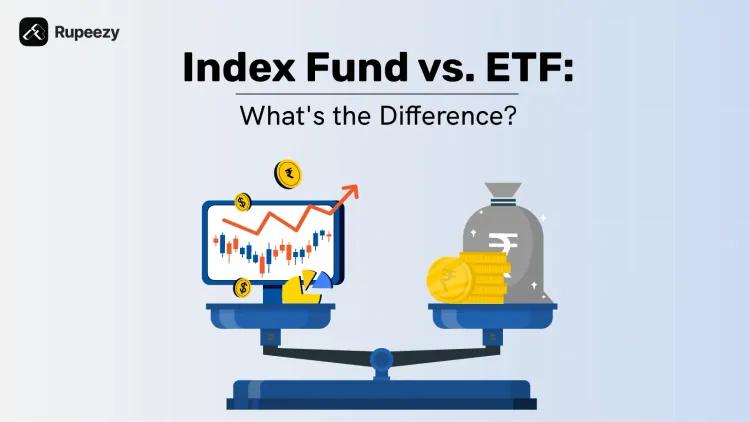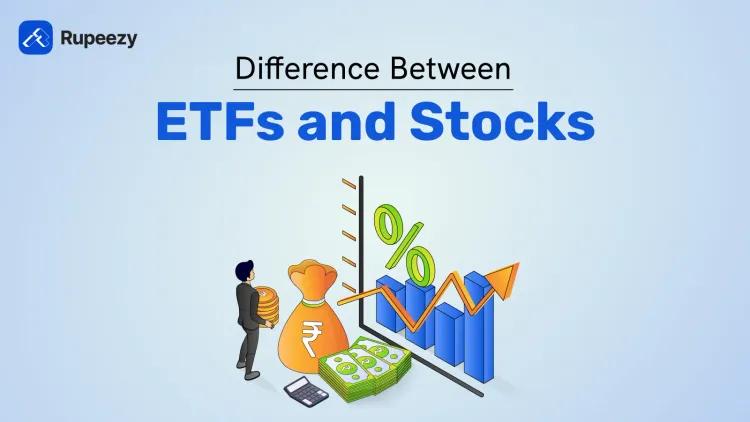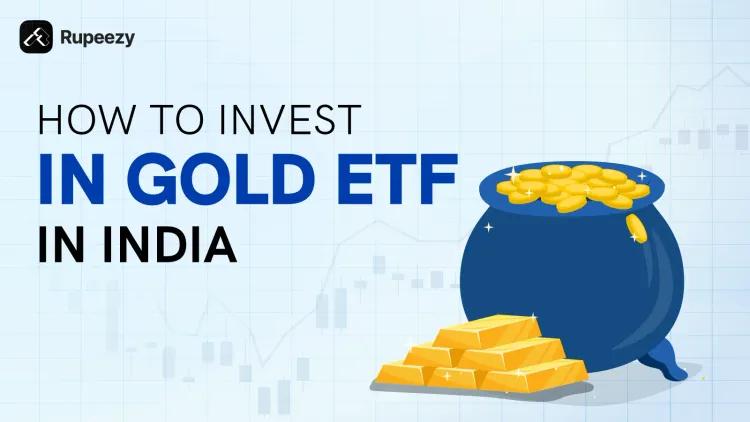Gold ETF vs Gold Mutual Fund: Differences and Similarities


00:00 / 00:00
Gold provides one of the top investment opportunities due to its exceptional growth capability and stability. This also makes Gold ETFs and Gold mutual funds one of the best investment alternatives for investors who are looking for digital means to invest in gold. Both offer a strong investment opportunity for gold investment, where you don’t need to own gold physically for investment.
However, investing in alternatives that may seem closely related often may lead to confusion. In this article, we will cover all the important details related to Gold ETFs and Gold Mutual Funds. We will also explore the major differences between gold ETF vs gold mutual funds.
A Closer Look At Gold ETF
Gold ETFs are investment funds that aim to follow the price of gold in the domestic market. They trade on stock exchanges such as the NSE and BSE, just like stocks. These are passively managed funds that are backed and represented by 99.5% pure physical gold bars.
When you sell a Gold ETF, you get cash, not gold. You handle it through a demat account and a broker, making things simple. As the Gold ETF tracks the price of actual Gold, its prices will also fluctuate based on the fluctuations in the Gold price
They are generally less expensive to manage than buying real gold. Gold ETFs eliminate the inconveniences of storing and managing physical gold. They provide a simple and cost-effective option to invest in gold without the complexities of owning physical gold.
A Closer Look At Gold Mutual Fund
In India, a gold mutual fund is a unique investment option. It raises funds from investors to purchase Gold ETFs and other gold-related assets. Like the Gold ETF, the Gold Mutual funds also backed and represented by 99.5% pure physical gold bars.
This allows investors to profit from gold price movements without having to buy physical gold. In addition to Gold ETFs, these funds may invest in shares of gold mining and processing companies.
Purchasing gold mutual funds doesn't need a Demat account and is a simple process. They let investors contribute on a regular basis, allowing them to progressively increase their gold investment. This strategy is particularly attractive in India, where gold has significant cultural and economic value.
Read our latest articles “Gold ETF Fund” and “Best Gold ETF in India”
Difference Between Gold ETF and Gold Mutual Funds
Gold ETF and gold mutual funds are both the best ways to invest in gold. You can get a stable return on your investment when investing in gold ETF and gold mutual funds. The differences between gold ETF and gold mutual funds include:
Parameter | Gold ETF | Gold Mutual Fund |
Management | Passively managed as it tracks the gold price | Actively managed by fund managers |
Liquidity | Easily traded on stock exchanges during market hours | Can be bought/sold based on NAV, at day’s end |
Mode of Investment | Lump sum investments; DIY SIPs | Lump sum investments; SIPs |
Demat Account | Required | Not required |
Exit Load | Not charged | Charged if redeemed before 1 year |
Conversion to Physical Gold | Possible | Not possible |
Transaction Cost | Lower due to passive management | Higher due to additional fees from the ETF |
Pricing | Priced in real-time on the stock exchange | Priced based on NAV, which is updated at the end of the trading day |
Transparency | High transparency with real-time pricing and holdings | Transparency based on the mutual fund's periodic reports |
Investment Flexibility | Can be bought/sold at any time during market hours | Investment and redemption are only processed at the end of the trading day |
Gold Mutual Fund vs Gold ETF: Similarities
Without having to directly own the metal, gold mutual funds and gold exchange-traded funds (ETFs) offer exposure to actual gold prices.
Exchange-traded gold exchange-traded funds (ETFs) provide transparency, liquidity, and usually lower management fees.
The values of the two instruments are meant to represent 99.5% pure gold.
Gold mutual funds offer diversified exposure and expert management, while gold exchange-traded funds (ETFs) offer flexibility and affordability.
Conclusion
ETFs for gold can be easily invested in using the Rupeezy app. You do not need to buy actual gold because gold ETFs track the metal's price. You can select from a number of Gold ETFs provided by the app based on your investment goals.
By using Rupeezy, you may improve your investment strategy and make more educated selections. It is easy to get started. Get the Rupeezy app now to find out which Gold ETFs are right for you.
The content on this blog is for educational purposes only and should not be considered investment advice. While we strive for accuracy, some information may contain errors or delays in updates.
Mentions of stocks or investment products are solely for informational purposes and do not constitute recommendations. Investors should conduct their own research before making any decisions.
Investing in financial markets are subject to market risks, and past performance does not guarantee future results. It is advisable to consult a qualified financial professional, review official documents, and verify information independently before making investment decisions.

All Category










